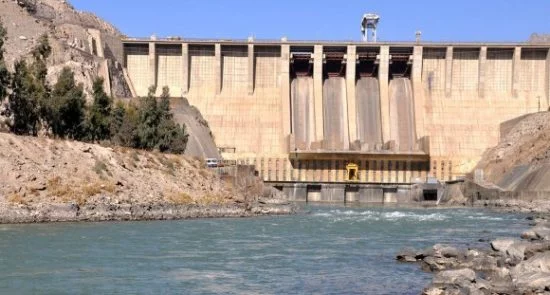Afghanistan, Economic, Social December 16, 2018
Short Link:Afghanistan-Pakistan’s Water Conflict Looms

For Afghanistan, the Kabul River is far more than a tool of coercive diplomacy against Pakistan.
Ariana News Agency- The Afghan government recently announced that they will soon commence work on the construction of the $236 million Shahtoot Dam on the Kabul River. The dam is expected to hold 146 million cubic meters of potable water for 2 million Kabul residents and irrigate 4,000 hectares of land in the Charasiab district of the province. The project is a component of Afghanistan’s India-backed ambitious plans of building 12 dams on the Kabul River basin.
The project, however, has agitated the water-stressed Pakistan. In a conference recently held in Peshawar, the Pakistani officials showed deep concerns regarding the inauspicious effects of the project on the agricultural production and livelihood of Peshawar residents. Pakistani media have even framed the project as Afghanistan’s oppressive policy toward Pakistan, masterminded by India. But for Afghanistan, improving its power and water infrastructures is imperative to jumpstart its lagging economy and ensure internal stability.
The Kabul River, on the other hand, is fundamental to meeting the demands for irrigation, potable water, and power in Khyber Pakhtunkhwa (KP), the northwestern region of Pakistan bordering Afghanistan. The river irrigates three districts of this fertile region – providing 85 percent of irrigation in Charsada, 80 percent in Peshawar, and 47.5 percent in Nowshera — and is the sole source of drinking water for millions of Pakistanis living around the basin.
For Afghanistan, however, the Kabul River is beyond a tool of coercive diplomacy against Pakistan. It is a mean of livelihood for 7 million Afghans living around the basin, and an indispensable resource for reinvigorating its collapsed economy. Though signing a treaty is ideal for the efficient use of the river, given the capricious political relationship between the two nations, the Afghan government will not sign an agreement with Pakistan — at least in the immediate future.
Nonetheless, it is inevitable that Kabul must respect the rights of Pakistan as the lower riparian of the Kabul River. A “win-win” solution, therefore, requires Afghanistan to ensure “equitable” and “reasonable” use of the river — under the framework of the 1997 UN Convention on Non-Navigational Uses of International Watercourses — to cause no harm to Pakistan. And, in response, Pakistan should contribute to the economic development of Afghanistan, especially by opening its trade and transit routes for the Afghan businesses.
Based on a report by The Diplomat.









